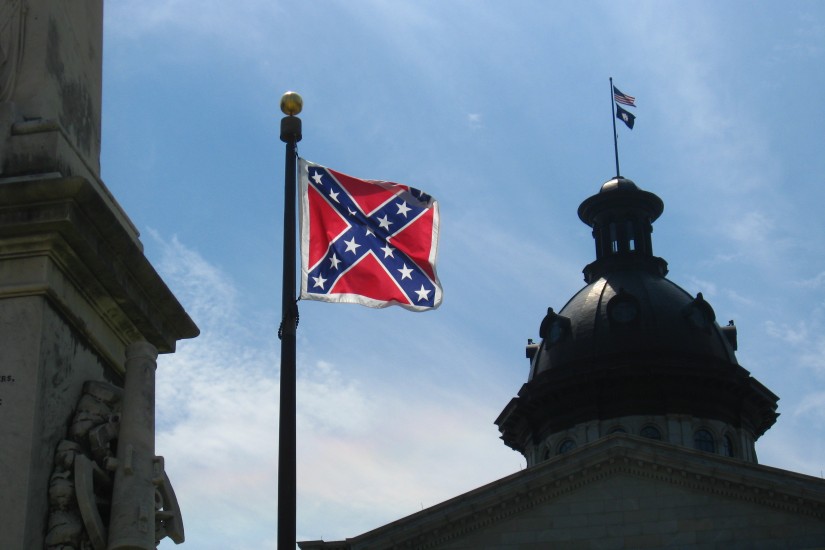This afternoon, in announcing her support for removing the Confederate flag from the capitol grounds, South Carolina Governor Nikki Haley asserted that killer Dylann Roof had “a sick and twisted view of the flag” that did not reflect “the people in our state who respect and in many ways revere it.” If the governor meant that very few of the flag’s supporters believe in mass murder, she is surely right. But on the question of whose view of the Confederate flag is more twisted, she is almost certainly wrong.
Roof’s belief that black life had no purpose beyond subjugation is “sick and twisted” in the exact same manner as the beliefs of those who created the Confederate flag were “sick and twisted.” The Confederate flag is directly tied to the Confederate cause, and the Confederate cause was white supremacy. This claim is not the result of revisionism. It does not require reading between the lines. It is the plain meaning of the words of those who bore the Confederate flag across history. These words must never be forgotten. Over the next few months the word heritage will be repeatedly invoked. It would be derelict to not examine the exact contents of that heritage.
This examination should begin in South Carolina, the site of our present and past catastrophe. South Carolina was the first state to secede, two months after the election of Abraham Lincoln. It was in South Carolina that the Civil War began, when the Confederacy fired on Fort Sumter. The state’s casus belli was neither vague nor hard to comprehend:
… A geographical line has been drawn across the Union, and all the States north of that line have united in the election of a man to the high office of President of the United States, whose opinions and purposes are hostile to slavery. He is to be entrusted with the administration of the common Government, because he has declared that that “Government cannot endure permanently half slave, half free,” and that the public mind must rest in the belief that slavery is in the course of ultimate extinction. This sectional combination for the submersion of the Constitution, has been aided in some of the States by elevating to citizenship, persons who, by the supreme law of the land, are incapable of becoming citizens; and their votes have been used to inaugurate a new policy, hostile to the South, and destructive of its beliefs and safety.
In citing slavery, South Carolina was less an outlier than a leader, setting the tone for other states, including Mississippi:
Our position is thoroughly identified with the institution of slavery—the greatest material interest of the world. Its labor supplies the product which constitutes by far the largest and most important portions of commerce of the earth. These products are peculiar to the climate verging on the tropical regions, and by an imperious law of nature, none but the black race can bear exposure to the tropical sun. These products have become necessities of the world, and a blow at slavery is a blow at commerce and civilization. That blow has been long aimed at the institution, and was at the point of reaching its consummation. There was no choice left us but submission to the mandates of abolition, or a dissolution of the Union, whose principles had been subverted to work out our ruin …
